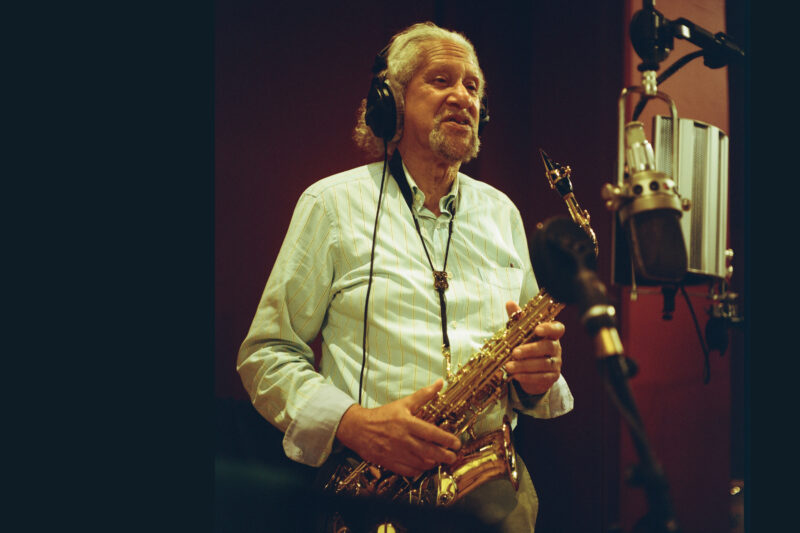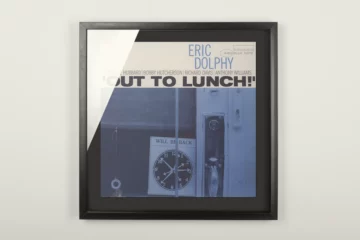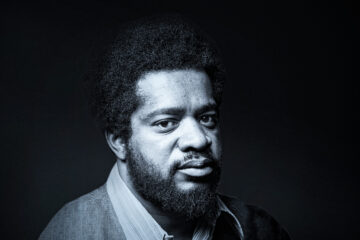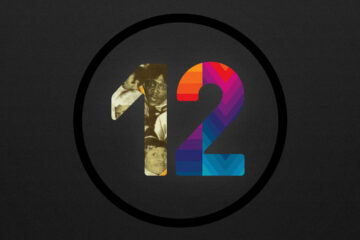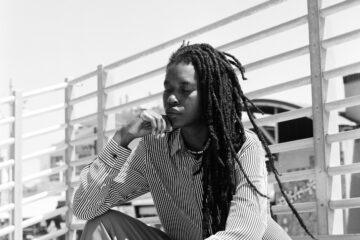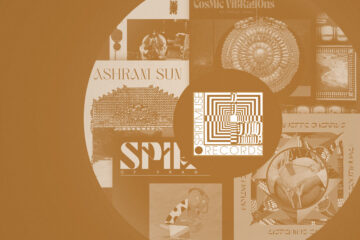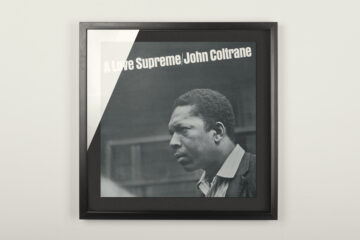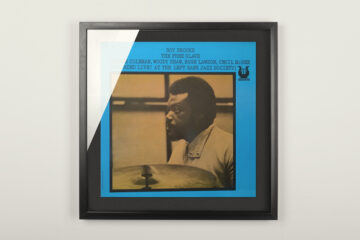Gary Bartz turns 80 this September. While the soprano saxophonist has spent almost as many years on stage and in the studio, he is a walking encyclopedia of music history, having played with Art Blakey and his Jazz Messengers in the early 1960s as well as with Charles Mingus and Max Roach. In the early 1970s Miles Davis invited him into his band — fully electric, with Bartz on the soprano. With his own ensemble, the NTU Troop, Bartz released several albums on labels such as Milestone and Prestige. Music that over 50 years later still sounds as up-to-date as if it had been shock-frozen into fresh bags in 1971.
Now Gary Bartz has released an album again with British band Maisha. In 2018, the ensemble around drummer Jake Long released a celebrated album with »There is a Place« and led the trend towards a revival of spiritual jazz. Together with Bartz they spent a day in an Amsterdam studio. All five tracks, as the subtitle of the record »Direct-To-Disc Sessions« suggests, were recorded in one take and pressed directly onto the record. Why Bartz wants to go back to the studio with Maisha immediately, which discoveries he still makes on stage and what all of that has to do with his telescope, he tells in an interview with HHV.
You can find Gary Bartz vinyl records’ in the [HHV Records Webshop von HHV Records](https://www.hhv.de/shop/de/suche/i:A5794_181956_12140_134507F0N45S11?term=bartz.)
You’ve always stressed that you hate the term jazz because of its origin and history that traces back to the brothels of red-light-districts in early twentieth century New Orleans. Recently, the genre of so-called spiritual jazz has regained popularity, especially among a younger generation. How do you feel about this?
Gary Bartz: It’s a business term. Great music is always spiritual to me. I don’t know how or when that term came up. If that’s how people in the business find a way to sell it, it’s okay. As musicians, we don’t need to put names on music. Likes Miles (Davis) said when we did the Isle of Wight (festival 1970). They asked him, what’s the name of the music he played? »Call it anything«, he said. But that’s what people do anyways. After all it’s great music. That’s enough for me. I don’t need anything other than great music.
You first played with the British band Maisha last summer — can you recall what it was like to be with them on stage for the very first time?
It was a lot of fun. They are great musicians. They listen. And that’s really the most important thing. As I’ve been telling my students lately, listening is more important than playing. When you find a group of musicians who can listen and listen properly, you got the making of a good group.
»The first thing you need to ask yourself is«, you once said in regard to finding your own sound was »what do I want to sound like.« Can you tell me about the process of working together with Maisha — how did you want to sound like?
You always want to sound good, but you don’t know what it’s going to sound like if you had never played with them before. You have to play. By playing with each other, you’ll find out. To be honest: I could tell at the rhythm that we had that it was going to be a great record. It’s not always like this. A lot of my students say to me that they don’t like their sound. I would tell them to ask themselves how they want to sound like. That’s a crucial question because unless you don’t ask yourself that you don’t have anything to go towards. You need a way of thinking about your sound as a goal. As a group, it’s more complicated because obviously you cannot ask yourself this question individually. The only way to develop is by performing. That’s how you develop your sound. Miles’ group, Art Blakey and the Jazz Messengers, any band really, they didn’t have a sound until they went out and played. It takes time to do that.
With Maisha, you didn’t have much time to develop a sound.
We did a tour and a few shows, developing a sound but it’s changing constantly. We had certain music that we were playing that had already been played. So we did have that sound to go to, but we were trying to find a new way to sound. I’m always for a newer way. You don’t want to sound like musicians before you. It’s really a work in progress. The more we play, the more of a sound we will find.
»As I’ve been telling my students lately, listening is more important than playing. When you find a group of musicians who can listen and listen properly, you got the making of a good group.«
Gary Bartz
Concerning younger people in the so-called jazz field, you said in 2008 that they just recreate what has gone on before.
Music is so vast, we are still taking ideas that were left by musicians like Bach, Beethoven and Mozart. Now people use ideas that build upon those ideas. Charlie Parker used a lot of Bach’s inventions — as a lot of other musicians did. We study all kinds of music and we take from the different music that we love. By doing that, we add to their inventions the way we interpret it. Music is only 12 notes. The most modern thing in music is the advent of the rhthm section. There has nothing more modern in music since this invention. Bach and Beethoven didn’t have a rhythm section. I’m sure they would have loved it if they had one. But they did not. We have the advent of the rhythm section which gave birth to what people call rock’n’roll and blues. You move it around, you turn it around, you switch it, you put what was in the back in the front and it’s still the same 12 notes. It’s never going to be something totally different.
You’re making music for the better part of your life. As you turn 80 years old this September — how important is it to you to pass on this knowledge of music history?
When I was coming up I was listening to Sunny Rollins, Coltrane, Charlie Parker, Clifford Jordan, and they all passed their information to me. It’s up to me to pass this information on to the younger generation. But that’s what musicians do. We listen to certain musicians we love, we want to study with how they go about it, we create it, and we pass it on.
The album was recorded for Night Dreamers »direct-to-disc«-series — all live, without overdubs. I remember you saying that for you playing live and recording in a studio are two very different things which should not be mixed up necessarily. What has changed your mind on making the live-recording?
Oh, I didn’t change my mind. I still believe that.
Still, you decided to try it out.
It’s something I’ve never done before. I’m always interested into something new — and I was intrigued by the direct-to-disc-thing. Like you said, it’s like doing a live recording. When you do a live recording, you want a working band who know the repertoire very well. Whereas when you go to the studio, you want to take advantage of all the technology and different techniques that you can use. That’s a different way of recording. The direct-to-disc-recording makes it exciting. You can’t make mistakes — or at least you have to keep them to a minimum.
*How did it turn out for you?
I thought it was good and I am looking forward to doing it again. The next time we’ll be even more prepared. The first time you do something, you don’t know what is going to happen. It’s like feeling your way through it. Once you’ve done it, you understand what needs to be done. Each time should be better.
In the session with Maisha you re-recorded two songs of yours, namely »Uhuru Sasa« and »Dr. Follow‘s Dance«, which you composed 50 years ago. I’m interested in what made you pick these two songs?
I did not pick them. Maisha and the label suggested them. That was okay with me.
How was it like to re-record these songs?
I mean, I still play them with my band. So it was not a stretch. What was different was that it were different musicians playing it. Obviously that made it exciting because they have a different background.
»Uhuru Sasa« was first recorded back in 1971 with NTU Troop — at a moment after you first hooked up with Miles Davis and also during the Vietnam War. As a protest song against the war it had a very particular meaning, hence I’d like to know how the original meaning has translated into 2020?
You hear the lyrics. »Hell no, we won’t fight your filthy battle — your filthy battle anymore!« We got our own battle to fight for. That still holds true today. I don’t see that it’s any different to 1971. It’s an ongoing battle. Politicians and leaders always want to send young men and women off to die in some foreign country for their own country. That doesn’t make sense to me. When we have problems right here in our own country that we don’t take care. It’s like having a family, but rather than taking care of them you go and take care of somebody else’s family in another country. That’s a nice thing to do. But when we got problems in our own country — in our own house — you take care of that first.
»We as people walk through life without being in reality. It’s like we don’t see reality, having so much throwing at us. We’ve got TV, we’ve got the internet, we got all this stuff, but we no longer see reality.«
Gary Bartz
Besides »Dr. Follow’s Dance«, there are three other songs on the record which you allegedly recorded on the very same day in the studio. Why did you decide to record new material with Maisha?
Gary Bartz: You don’t want to put out the same thing you’ve already done. Unless you’re doing it really differently. Basically, it was material that we discovered together while being live on stage. We came into the studio with some ideas, we sat down and figured it out. We came up with some nice melodies and rhythms, I think.
I’m not sure how much you were involved in this — but the record cover looks like a solar eclipse.
I had nothing to do with the cover, but you’re right, I can see that.
There’s a reason I ask you this. You studied astrology back in your early days. Albums like »Another Earth« from 1969 (Milestone) got inspired by this interest.
I’m sitting here looking at my telescope. My passion was astrology, but it turned into astronomy when I realized what I was looking at when I would draw a chart for someone I knew. I was actually looking at a photograph of the sky as it was at a certain point in time. Then I realized, I can look at it for real. I was drawing up people’s charts, but I said I don’t need photographs when I can just look up in the sky. That’s when I got into astronomy.
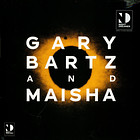
Gary Bartz: The universe is a mystery. We don’t know where we came from, we don’t know where we are heading. As a life form we don’t have any clue. When I look out into the universe with my telescope, I imagine so many things. We’re not the only life form in the universe. I know that — that’s a no-brainer.
I read that you saw a UFO back in 1963. Do you believe in extraterrestrial life?
Twice in my life I’ve seen objects that I know were not from this planet. If they were, somebody has put a lot of effort into it — which would not surprise me. We as people walk through life without being in reality. It’s like we don’t see reality, having so much throwing at us. We’ve got TV, we’ve got the internet, we got all this stuff, but we no longer see reality.
You can find Gary Bartz vinyl records’ in the [HHV Records Webshop von HHV Records](https://www.hhv.de/shop/de/suche/i:A5794_181956_12140_134507F0N45S11?term=bartz.)

